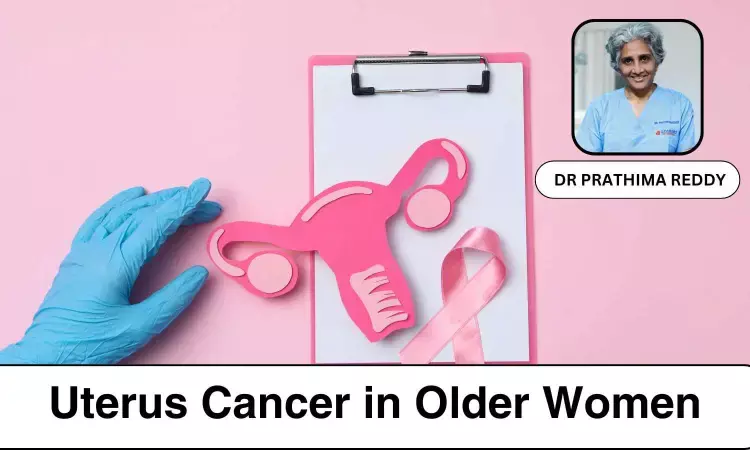- Home
- Medical news & Guidelines
- Anesthesiology
- Cardiology and CTVS
- Critical Care
- Dentistry
- Dermatology
- Diabetes and Endocrinology
- ENT
- Gastroenterology
- Medicine
- Nephrology
- Neurology
- Obstretics-Gynaecology
- Oncology
- Ophthalmology
- Orthopaedics
- Pediatrics-Neonatology
- Psychiatry
- Pulmonology
- Radiology
- Surgery
- Urology
- Laboratory Medicine
- Diet
- Nursing
- Paramedical
- Physiotherapy
- Health news
- Fact Check
- Bone Health Fact Check
- Brain Health Fact Check
- Cancer Related Fact Check
- Child Care Fact Check
- Dental and oral health fact check
- Diabetes and metabolic health fact check
- Diet and Nutrition Fact Check
- Eye and ENT Care Fact Check
- Fitness fact check
- Gut health fact check
- Heart health fact check
- Kidney health fact check
- Medical education fact check
- Men's health fact check
- Respiratory fact check
- Skin and hair care fact check
- Vaccine and Immunization fact check
- Women's health fact check
- AYUSH
- State News
- Andaman and Nicobar Islands
- Andhra Pradesh
- Arunachal Pradesh
- Assam
- Bihar
- Chandigarh
- Chattisgarh
- Dadra and Nagar Haveli
- Daman and Diu
- Delhi
- Goa
- Gujarat
- Haryana
- Himachal Pradesh
- Jammu & Kashmir
- Jharkhand
- Karnataka
- Kerala
- Ladakh
- Lakshadweep
- Madhya Pradesh
- Maharashtra
- Manipur
- Meghalaya
- Mizoram
- Nagaland
- Odisha
- Puducherry
- Punjab
- Rajasthan
- Sikkim
- Tamil Nadu
- Telangana
- Tripura
- Uttar Pradesh
- Uttrakhand
- West Bengal
- Medical Education
- Industry
Why is India witnessing a rise in Uterus Cancer in Older Women? - Dr Prathima Reddy

Uterine cancer, primarily affecting postmenopausal women, has seen a concerning uptick in incidence rates in recent times. This surge in cases is predominantly noted in urban regions, surpassing the rates of cervical cancer in these areas.
There's been a 132% increase in the number of Uterine cancer cases worldwide. Uterine cancer, also known as endometrial cancer, originates in the lining of the womb (endometrium). It is the most common gynecologic cancer worldwide, and the incidence in India is about 3.9%. says Dr Prathima Reddy, Director & Lead Consultant, Department of Obstetrics and Gynaecology, SPARSH Hospital, Bangalore.
Causes
A few causes why women in urban areas are more affected by Uterine Cancer:
1) Obesity: Easy access to high-calorie foods and decreased physical activity compared to rural areas increases the chances of obesity among people living in Urban areas. Obesity, in turn, constitutes a risk factor for uterine cancer.
2) Sedentary Lifestyle and Dietary Factors: Urban lifestyles, characterized by sedentary behaviours like prolonged sitting due to desk jobs or car commuting, coupled with diets high in processed foods and sugars, increase the risk of uterine cancer. In contrast, rural lifestyles often entail more physical activity and diets rich in fresh fruits, vegetables, and whole grains, which are linked to a decreased risk of uterine cancer.
3) Reproductive Factors: Never having had children increases the risk of uterine cancer as opposed to having at least one pregnancy. Career priorities in urban women may contribute to this.
4) Environmental Factors: Urban areas may have higher levels of pollution, exposure to endocrine-disrupting chemicals, and other environmental factors that could contribute to the development of uterine cancer.
5) Hormonal Factors: Exposure to hormones, whether through hormone replacement therapy or other medications, may differ between urban and rural populations due to differences in healthcare access and prescribing patterns. Hormonal influences play a significant role in the development of uterine cancer among women.
The increasing occurrence of uterine cancer poses a notable public health concern demanding immediate attention and collaborative effort. By understanding the underlying factors driving this trend, we can strive to reverse the trajectory and reduce the burden of uterine cancer on women's health and well-being.
Disclaimer: The views expressed in this article are of the author and not of Medical Dialogues. The Editorial/Content team of Medical Dialogues has not contributed to the writing/editing/packaging of this article.
Dr Prathima Reddy MBBS, MRCOG, FRCOG, FACOG is a Director and Lead Consultant at the department of Obstetrics and Gynaecology at Sparsh Hospital, Bangalore. With over 28 years of experience as a specialist, Dr Reddy specialises in high-risk obstetrics and is the lead for tertiary referrals for complicated pregnancies. She is well known for her sound knowledge and balanced, evidence-based decisions and sees many patients referred for second and third opinions.


